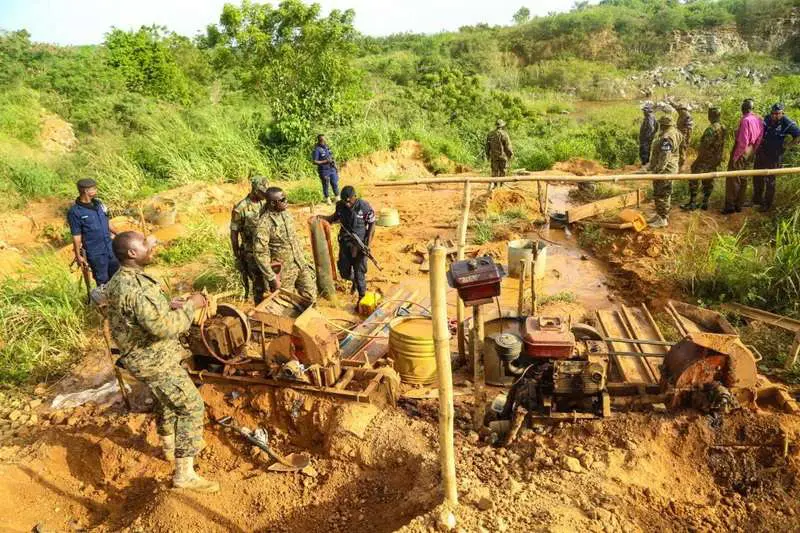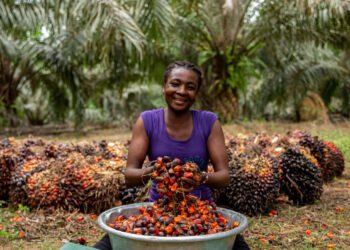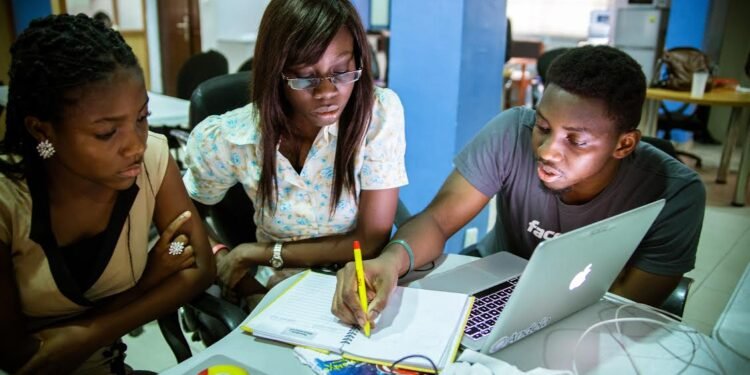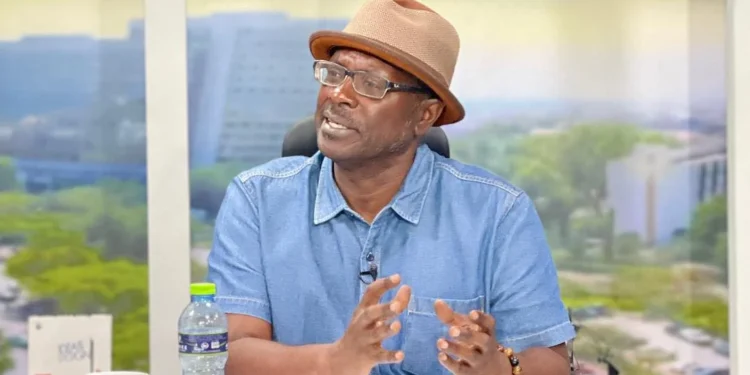The Peasant Farmers Association of Ghana (PFAG) has issued a passionate appeal to farmers across the country to take an active role in the ongoing national fight against illegal mining, popularly known as galamsey.
According to the association, the unchecked activities of illegal miners are not only destroying Ghana’s environment but also crippling the country’s agricultural productivity.
Speaking on behalf of the association, Nana Ameyaw Manu, a former Vice Chairman of PFAG, warned that the increasing destruction of farmlands by illegal mining is having a catastrophic impact on crop yields and food production. He said the scale of devastation across farmlands and water bodies could soon place Ghana’s food security “under siege” if urgent measures are not taken.
“Our study has shown that food crops and cocoa are not doing well in most of the communities devastated by illegal mining. If this trend continues, the nation risks losing its agricultural backbone and may face a severe food shortage in the near future.”
Nana Ameyaw Manu
Farmlands and Cocoa Plantations Under Siege
Over the past few years, galamsey activities have encroached deep into Ghana’s fertile agricultural zones, especially in cocoa-growing regions such as Ashanti, Eastern, Western North, and Central regions. Farmers in these areas have been forced to abandon productive farmlands after illegal miners invaded them, leaving behind pits filled with toxic waste and mercury-contaminated water.
Nana Ameyaw noted that this situation has resulted in a marked decline in crop yields, especially cocoa, which remains one of Ghana’s key export commodities. “The destruction of cocoa plantations is alarming,” he lamented.
“Many farmers who used to produce several bags of cocoa per acre are now struggling to harvest even half of what they did before. Illegal mining has poisoned the soil and polluted rivers used for irrigation.”
Nana Ameyaw Manu
He emphasized that the effects of galamsey extend beyond immediate economic loss. The destruction of topsoil, deforestation, and water pollution have created long-term ecological damage that will take decades to reverse. “If we don’t protect our lands now, future generations will have nothing left to farm,” he added.
Farmers Urged to Report Illegal Activities
The PFAG is urging farmers to go beyond lamenting the destruction and instead become active participants in the fight against galamsey. Nana Ameyaw advised that farmers should report any suspicious illegal mining activities happening within their communities to the appropriate security agencies.
He also called on farmers to protect their farms from sand mining, which has also become a growing menace in many agricultural areas. “We must all take responsibility for safeguarding our farmlands. Illegal mining and sand winning are robbing us of our future,” he said.
In addition, Nana Ameyaw appealed to local authorities, traditional rulers, and opinion leaders to support the government’s efforts in curbing illegal mining. He said community-based vigilance could make a significant difference in detecting and stopping galamsey operations before they spread.
Beyond illegal mining, PFAG also expressed concern about rampant illegal logging activities, which are depleting forest reserves and affecting the climate conditions necessary for productive farming. Nana Ameyaw urged farmers to report illegal chainsaw operators to the Forestry Commission and the security services.
He cautioned that the destruction of forest cover through illegal logging could worsen soil erosion, increase flooding, and reduce rainfall patterns — all of which directly affect agricultural output. “Our forests are the lungs of our farms,” he said. “When we cut them down recklessly, we destroy the very system that sustains farming.”
Farmers’ Voices
Adding her voice to the concerns, Madam Rebecca Nana Serwaa Twumwaa, a vegetable and economic crops farmer, shared how the pollution of rivers and streams by illegal miners has devastated vegetable farming. She explained that farmers who depend on river water for irrigation can no longer cultivate vegetables safely because of the high levels of mercury and other harmful chemicals in the water.
“Vegetable farming has become extremely difficult,” she said. “The polluted water destroys the crops and makes them unsafe for consumption. Many of us have had to stop farming because we simply don’t have access to clean water for irrigation.”
Madam Twumwaa also expressed concern that the livelihoods of many women in rural areas, who depend on vegetable production for income, are now at risk. She called for stronger government intervention to protect farmers’ sources of water and livelihood.
The PFAG believes that addressing the menace of illegal mining requires a united national effort that includes farmers, local leaders, government agencies, and security forces. The association has urged the government to strengthen enforcement and ensure that offenders face strict penalties to deter others.
Nana Ameyaw emphasized that the country cannot continue to treat galamsey as a political issue. “This is a national crisis,” he stressed. “When farmlands are destroyed and rivers are polluted, we all suffer — regardless of political affiliation. We must treat the fight against galamsey as a patriotic duty.”
He further called on the Ministry of Food and Agriculture, the Ghana Cocoa Board (COCOBOD), and the Environmental Protection Agency (EPA) to collaborate in rehabilitating degraded farmlands and restoring affected water bodies.
READ ALSO: Damongo to Host Two Major Projects: a Teaching Hospital, Catholic Science and Technology University























